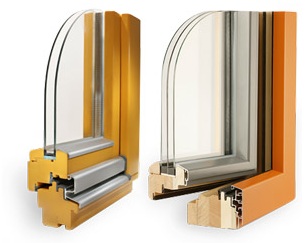As time goes by we’re being encouraged to invest in triple glazed windows to improve the energy efficiency of our homes. Not only can we save money on our heating bills, but we can also do our bit to save dear old planet earth – everybody wins, right?
Yet opinion is divided on the subject of triple glazing windows – many of which are misinformed or otherwise misleading. You can’t listen to the advertisers and the ‘experts’ can’t seem to agree on an answer, but it’s actually quite simple.
How does triple glazing beat double?
The answer to this question varies greatly depending on the climate outside. Cold nations like Sweden and Norway widely use triple glazing windows and reap the benefits of better performance. Here in the UK things are a little bit different though and the benefits are less obvious.
Does that mean you shouldn’t invest in triple glazed windows? Well, not exactly. The heat retention performance between double and triple glazing may be smaller in our climate, but that’s speaking purely from a financial point of view. When it comes to creating a more comfortable home to live in, triple glazing with a centre-pane U value of 0.65 outperforms double glazing by 2°C.
What does this all mean?
It’s easy to say triple glazing outperforms double by 2°C or any other figure, but what does this actually mean for you and your money? Well these findings come from the PassiveHaus Institute in Germany that shows the surface temperature of the triple glazed windows tested retained heat more effectively.
This doesn’t add up to a great deal of saved money, but it does create a more comfortable home with less draft and cold spots around the windows and doors – while it’s also worth mentioning the improved reduction of noise pollution with triple glazing. We’ll come to the finances shortly, but first there’s something else you need to know about the performance of triple glazed windows.
More sometimes means less
Three panes of glass mean a slight reduction of natural light and marginally less heat retention than double glazing equivalent – which is why the British Fenestration Rating Council has created a system for grading windows, from A to G.
This applies to double glazing as well and A-grade windows are expected to absorb as much heat as they lose. Triple glazing outperforms double, despite this shortcoming, but it’s worth knowing before you decide to upgrade.
The financial laydown
You’ll hear lots of talk about the money you can save by investing in triple glazed windows, but the truth is you’ll be waiting a while just to make your money back. You will save money in the long-run, but – like most green investments – you won’t see a return for some time.
Triple glazing isn’t the cheapest of things either. That said, this time of year is the perfect time to sign up with a bunch of January deals on offer. I know Warmseal, my nearest supplier in sunny Newcastle has a sale on right now, and your local supplier probably will have too.
So what about the short-term financial benefits of triple glazing? Well, the government is determined to create more sustainable households here in the UK. And while it looks like the zero carbon target for 2016 won’t be happening, this is an issue that won’t disappear from the national agenda. Which normally means incentives or fines, depending on whether you comply with the targets set out by the government.

Leave a Reply